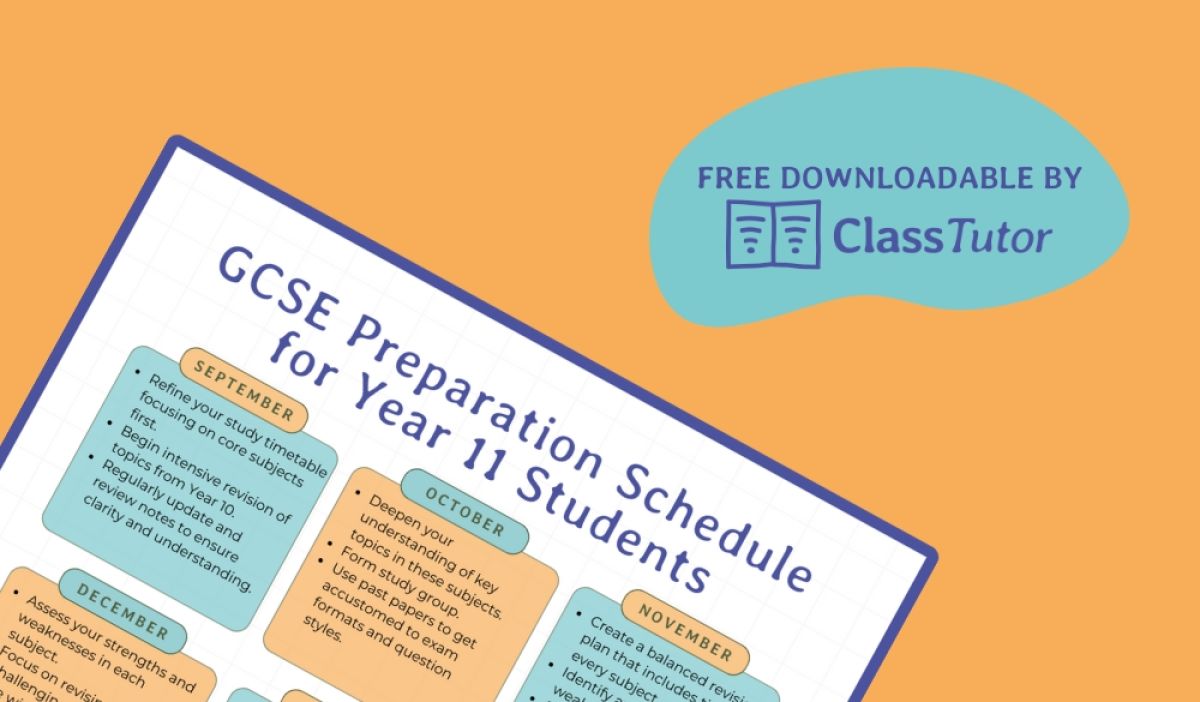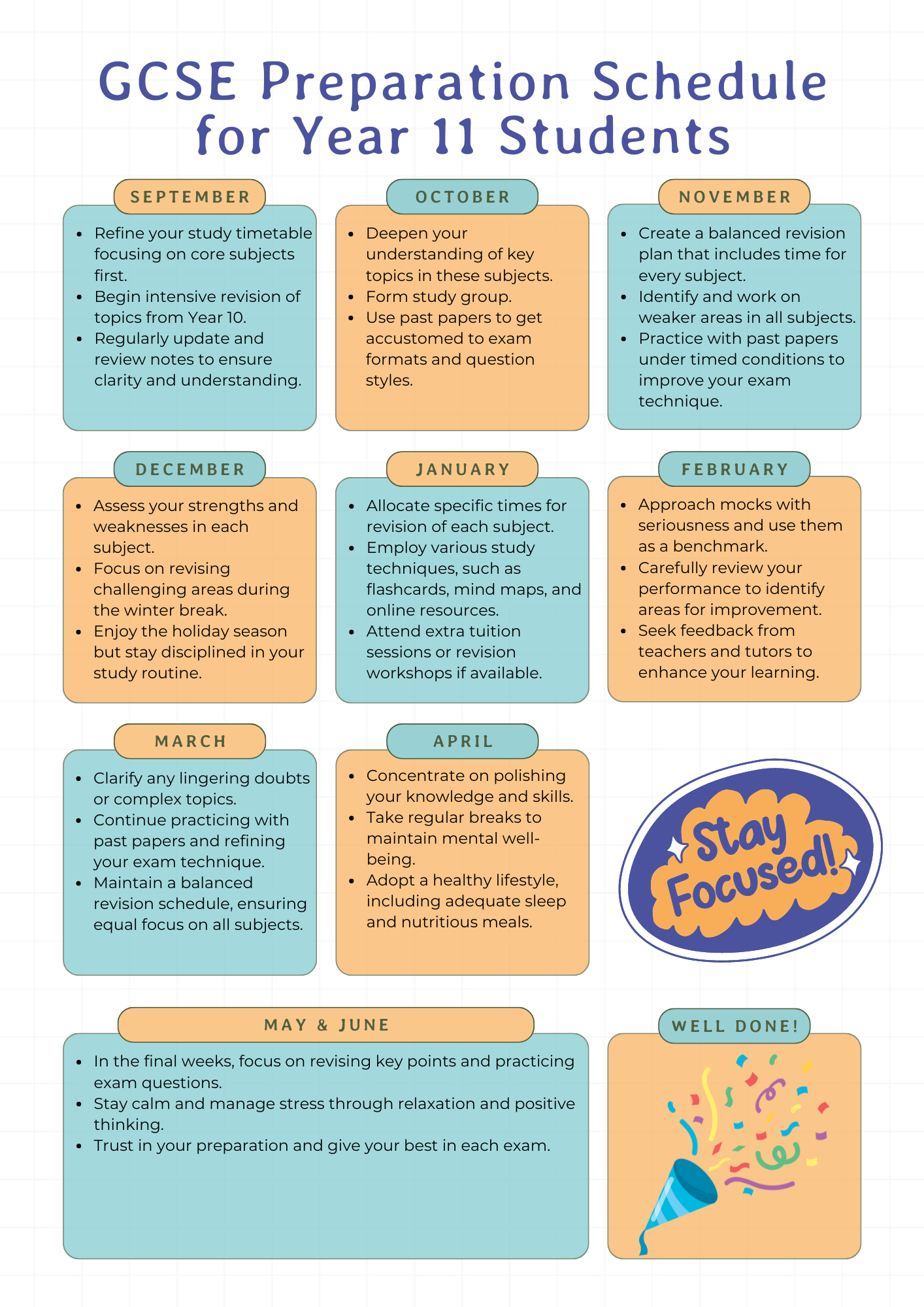GCSE Preparation Schedule for Year 11 Students

Entering Year 11 signifies the final stretch in your GCSE journey. It’s a year that demands focus, diligence, and a strategic approach to study.
This article outlines a month-by-month guide, helping you navigate through this crucial year and prepare effectively for your GCSE exams.
September (Year 11 Begins): Ramping Up the Preparation
The start of Year 11 is your cue to ramp up your GCSE preparation. It’s helpful to also make a list of topics from Year 10 that you find challenging. This list will enable your tutors to provide targeted lessons to strengthen those areas.
- Refine your study timetable focusing on core subjects first.
- Begin intensive revision of topics from Year 10, reinforcing your foundational knowledge.
- Regularly update and review notes to ensure clarity and understanding.
October: Strengthening Core Subjects
Core subjects like Maths, English, and Science require special attention this month.
- Deepen your understanding of key topics in these subjects.
- Form study groups to discuss and solve complex problems together.
- Use past papers to get accustomed to exam formats and question styles.
November: Broadening Your Revision
Expand your revision to cover all GCSE subjects. Did you know – You can reach out to the team at ClassTutor to help with designing your personalised revision plan?
- Create a balanced revision plan that includes time for every subject.
- Identify and work on weaker areas across all subjects.
- Practice with past papers under timed conditions to improve your exam technique.
December: Reflective Study
The end of the first term is an ideal time for reflection.
- Assess your strengths and weaknesses in each subject.
- Focus on revising challenging areas during the winter break.
- Enjoy the holiday season but stay disciplined in your study routine.
January: Intensive Revision Phase
Start the new year with a renewed focus on intensive revision.
- Allocate specific times for revision of each subject.
- Employ various study techniques, such as flashcards, mind maps, and online resources.
- Attend extra tuition sessions or revision workshops if available.

February: Mock Exams and Feedback
Mock exams are crucial practice for the final GCSEs. Did you know – If you are disappointed with your mock results you can reach out to the team and we can review the paper and suggest exam techniques
- Approach mocks with seriousness and use them as a benchmark.
- Carefully review your performance to identify areas for improvement.
- Seek feedback from teachers and tutors to enhance your learning.
March: Consolidating Knowledge
With exams fast approaching, consolidate your learning across all subjects.
- Clarify any lingering doubts or complex topics.
- Continue practising with past papers and refining your exam technique.
- Maintain a balanced revision schedule, ensuring equal focus on all subjects.
April: Final Preparations
The last month before exams is crucial for final preparations.
- Concentrate on polishing your knowledge and skills.
- Take regular breaks to maintain mental well-being.
- Adopt a healthy lifestyle, including adequate sleep and nutritious meals.
May/June: GCSE Exams
The culmination of your efforts: the GCSE exams.
- In the final weeks, focus on revising key points and practising exam questions.
- Stay calm and manage stress through relaxation and positive thinking.
- Trust in your preparation and give your best in each exam.
Post-Exams: Relax and Reflect
After exams, it’s time to relax and look back on your achievements.
- Enjoy a well-deserved break and celebrate your hard work.
- Reflect on your learning process and strategies that worked well.
- Consider your next steps in education or career paths.
Year 11 is a pivotal year, and approaching it with a well-structured revision plan is crucial for GCSE success. Regular study, self-care, and staying motivated are key components of this journey. By following this guide, you can ensure a comprehensive and balanced preparation for your exams.
Good luck!
CLICK TO DOWNLOAD YOUR FREE PREPARATION SCHEDULE

